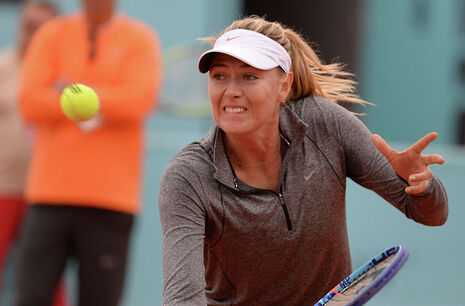In Defence of: Maria Sharapova
In the first of our new weekly column, Ronan Marron argues that Maria Sharapova deserves a second chance – and a French Open wild card

Maria Sharapova’s recent return to Tour after a 15 month drug suspension was always going to be controversial. As one of the biggest names in tennis, she comes under particular scrutiny from her peers and the media. It is only right that those who gain so much power in the sport are held accountable. Yet the reaction to her return on the part of many fellow players and sports pundits has been hugely misjudged.
A particular sticking point it seems is the question as to whether she deserves a wild card to the French Open. For the unfamiliar, a wildcard is a discretionary direct entrance into a tournament, awarded by its organisers, which the player would otherwise be too low ranked to receive. There is a general feeling that Sharapova, who lost her ranking during her suspension, ought to have to work her way up again in the sport, rather than being handed entry into top tournaments.
Maria Sharapova may have, so to speak, committed a crime – but she has now done her time.
However, that stance really calls into question what wildcards are actually for. One of the main, and most important uses of a wild card, I think, is to allow players whose ability is not reflected in their ranking to compete in big tournaments. As a five-time Grand Slam Champion, it was always likely that Sharapova was going to be playing at a high enough level to compete at the French. Any doubts about that have been brushed away by a run to the semis at the premier level tournament in Stuttgart last week.
Maria Sharapova may have, so to speak, committed a crime – but she has now done her time. She had a 15 month ban and it has now elapsed. If she is capable of playing at even close to her old level, then it would be a shame for such talent to be missing from the top tournaments. That would be a shame for her and for the sport.
Many, most recently fellow player Kristina Mladenovic, have conceded that they understand why tournaments want her playing – but that it simply is not right. This is indicative of the wider problem with the attitude to Maria Sharapova’s return, it treats doping infringement as exactly the same.
The impulse to purge all those associated with doping is understandable. The damage that a culture of doping can cause in a sport is clear, and it is true that every measure must be taken to prevent that. This means that that anti-doping authorities and initiatives should be taken seriously.
"the situation with Maria Sharapova is clearly different from a systematic attempt to flout the rules of the game"
In my opinion, that also means taking the Court of Arbitration in Sport (CAS) seriously when they found Maria Sharapova to be at no significant fault. Meldonium, the drug that Sharapova tested positive for, was added to the list of banned drugs less than a month before she tested positive. She played only a single tournament while taking a banned substance. A banned substance which she had been prescribed by her doctor since her teenage years.
That is not to excuse Sharapova. She herself has accepted that she violated the rules, and that that must have consequences. Few would disagree with that. However, the situation with Maria Sharapova is clearly different from a systematic attempt to flout the rules of the game. This difference must also be taken seriously.
Fellow top tennis player Eugenie Bouchard recently branded Sharapova a “cheater” and said she should never be allowed to play again because it “sends the wrong message to young kids, cheat, and we’ll welcome you back with open arms”. This kind of thinking displays an astounding lack of nuance.
Sharapova received a reprimand that was appropriate given the mitigating circumstances of the case. She did not get off lightly. She is a professional tennis player who has missed more than a year, in an already injury-marred career, because of an unintentional infringement. It was right that she was banned. However, now it’s time to let her get back to doing what she does best – playing tennis
 News / Uni members slam ‘totalitarian’ recommendation to stop vet course 15 January 2026
News / Uni members slam ‘totalitarian’ recommendation to stop vet course 15 January 2026 Science / Why smart students keep failing to quit smoking15 January 2026
Science / Why smart students keep failing to quit smoking15 January 2026 Comment / Will the town and gown divide ever truly be resolved?12 January 2026
Comment / Will the town and gown divide ever truly be resolved?12 January 2026 Interviews / The Cambridge Cupid: what’s the secret to a great date?14 January 2026
Interviews / The Cambridge Cupid: what’s the secret to a great date?14 January 2026 Features / How sweet is the en-suite deal?13 January 2026
Features / How sweet is the en-suite deal?13 January 2026









